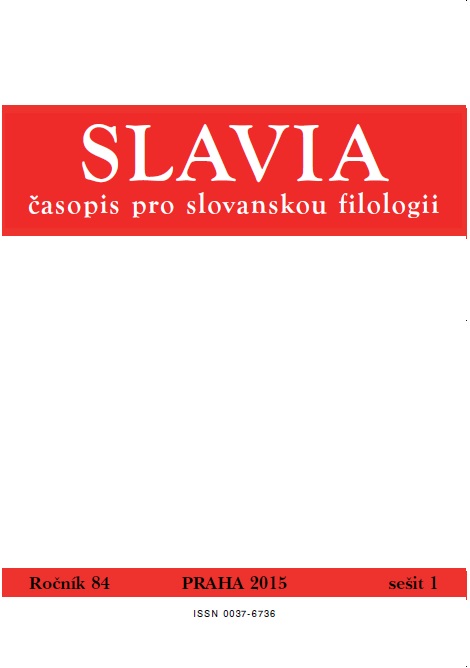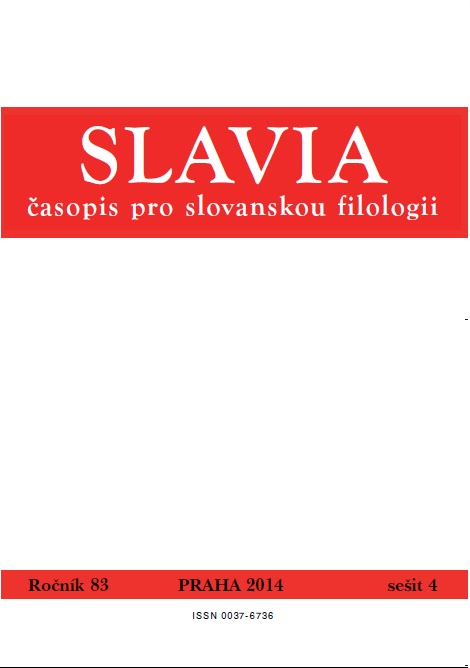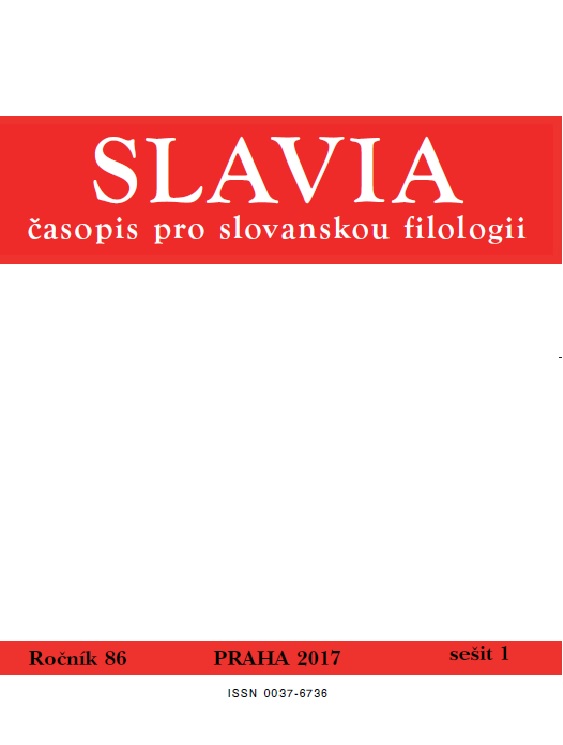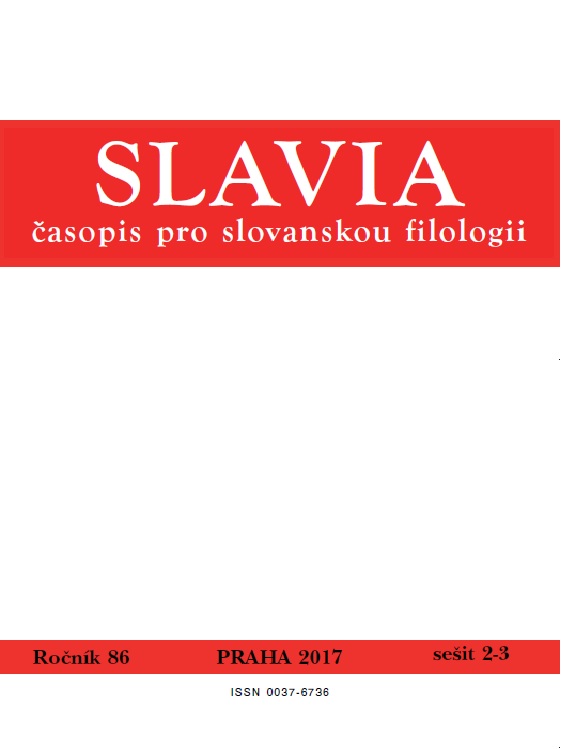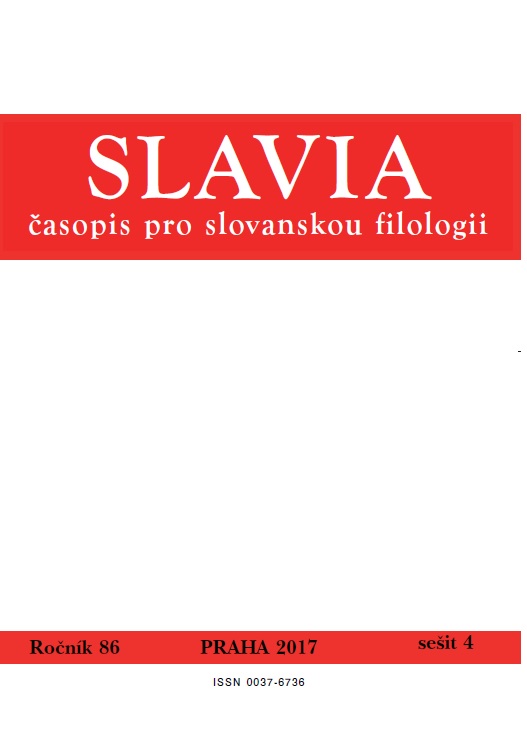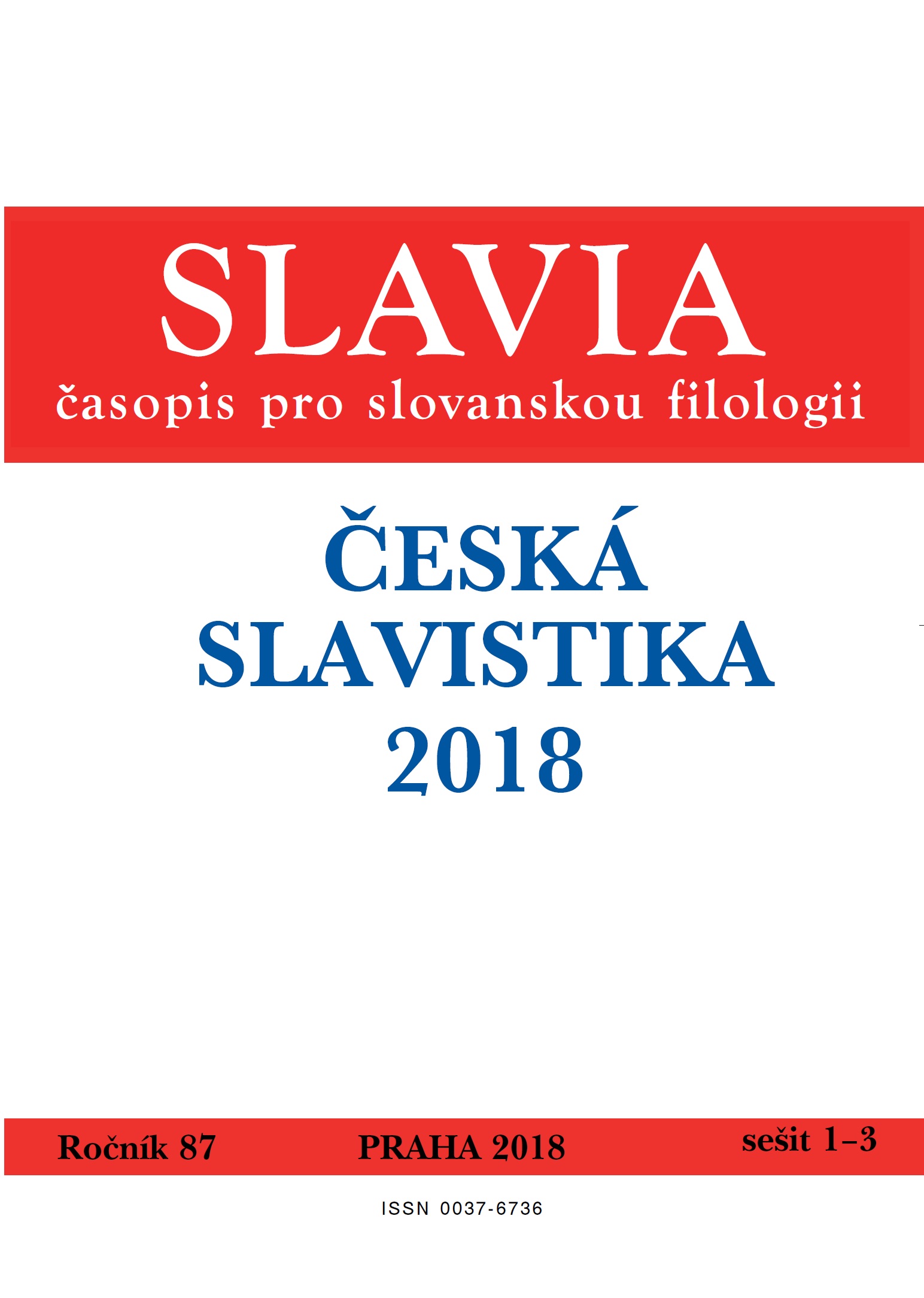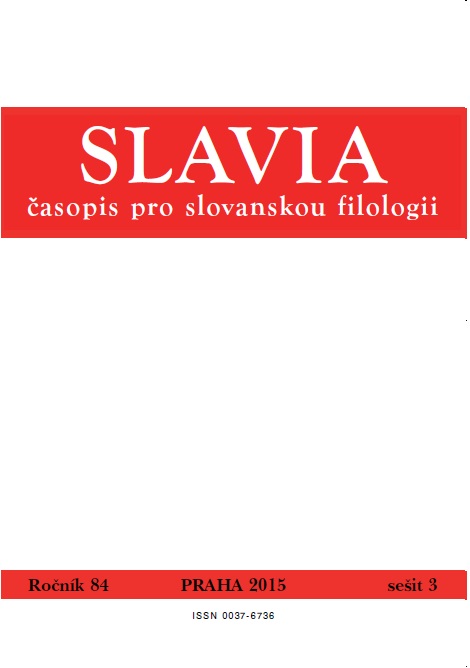
The Perfect from a Cross-Linguistic Perspective in Old East Slavic1) Texts
In this article it is made use of a cross-linguistic conception of the category of perfect, as being marked morphologically as periphrastic and semantically involving two temporal planes. An analysis is undertaken to show how the Old East Slavic perfect shaded into several meanings, opening up for the gradual replacement of the imperfect and the aorist by the perfect in terms of the l-participle. This process in Russian led to a single preterit based on a nominal form declined for the categories of gender and number, but not for the category of person.
More...
